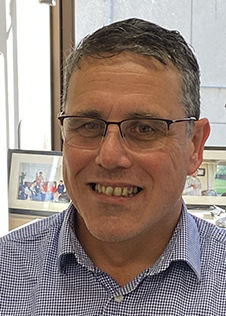The Christchurch Heart Institute (CHI) has recruited a Māori Research Adviser to help them appropriately respond to the cultural best practices of Te Ao Māori (all things Māori).

Karaitiana Tairuru.
Karaitiana Tairuru (Ngāi Tahu, Ngāti Toa and Ngāti Kahungunu) recently finished his PhD about Tikanga Sovereignty with Genomics, through Te Whare Wānanga o Awanuiāramgi. The PhD covered cultural aspects of genomic research, cultural safety issues, data sovereignty, and intellectual property rights of Māori genetic resources.
In addition, Karaitiana is a member of a number of government advisory boards including MBIE's Māori Advisory Committee for all Māori trademarks, ensuring trademark applications are not offensive to Māori and do not encroach on traditional ownership.
The newly created position at the CHI offers Karaitiana broad scope to develop the role as he and the CHI steering group see fit.
However, the focus will be on advising the CHI team about how to engage with Māori communities and strengthen their relationship with Ngāi Tahu, ensure the Māori and Indigenous Health Institute (MIHI) research recommendations are implemented, and ensure the Te Tiriti o Waitangi (the Māori version of the Treaty) obligations are adhered to.
For example, Karaitiana explained that currently there is no reference to Te Tiriti in any CHI research literature.
The work even includes details such as designs on blood file stickers.
“The Koru has been used as a design on Māori blood sample stickers. This is not appropriate because the koru signifies new life and rejuvenation. The way blood samples are handled in the lab – separating the blood elements means nothing is left in its original form. That has spiritual and cultural implications. The sticker could be Kawakawa leaf instead. Which is used for protection and in death – placed around a picture of someone who has died, for example,” Karaitiana said.
“I am pleased to be able to assist the CHI in their endeavours to align their research with Kaupapa Māori frameworks. They are producing significant research results for all peoples and working to get the cultural and spiritual aspects correct, this will help to enhance the research goals and health equity,” Karatiana said.